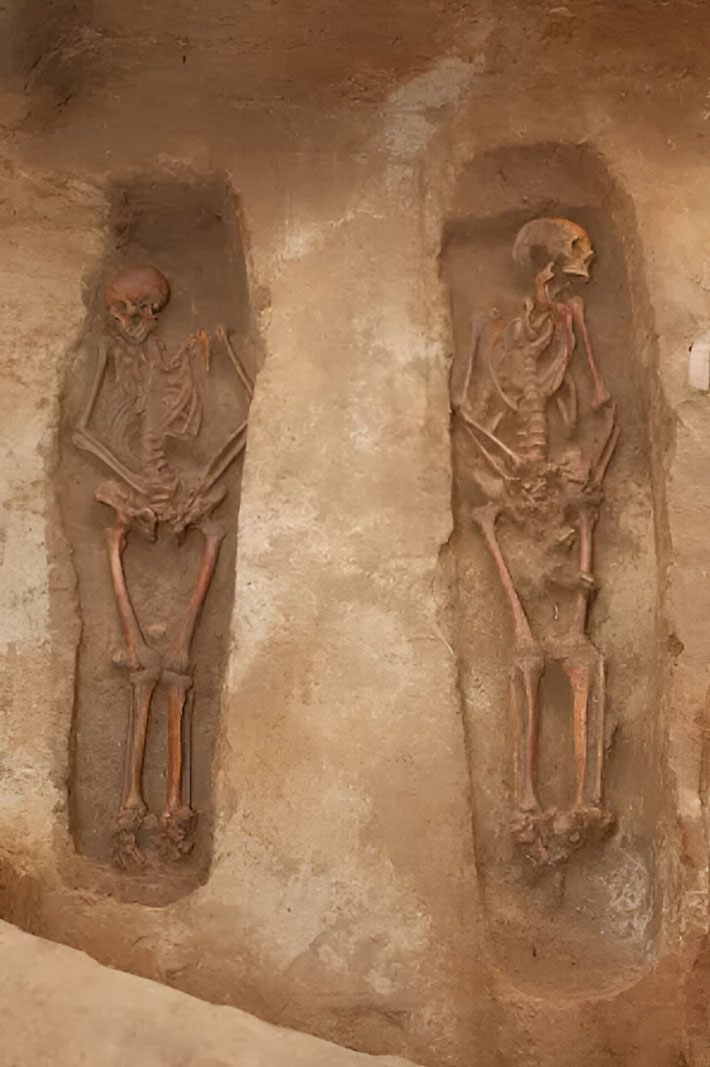 STORRS, CONNECTICUT—According to a statement released by the University of Connecticut, anthropological geneticist Raquel E. Fleskes and her colleagues analyzed the genomes of the 11 people whose remains were found at Avery’s Rest, a tobacco farm in Delaware owned by John Avery and his family from about 1675 to 1725. The study suggests that two of the men and one of the children were of African descent. One of these men was connected to West Africa, while the other man and child, who were father and son, had mixed backgrounds from west and central Africa. The remaining five men, two women, and child, who were of northwestern European descent, were related to each other. These individuals included a grandmother, mother, and infant son. “Avery’s Rest is notable because the European individuals and African individuals were buried in the same burial ground separated by only 15 to 20 feet,” Fleskes explained. John Avery had ties to Barbados, so he may have brought enslaved individuals with him from the Caribbean to Delaware. These two men of African descent may even be those who were listed among Avery’s property when he died in 1682, she added. Fleskes will next attempt to identify the 11 people and their descendants. For more on genetic analysis of enslaved Africans, go to "Tracing Slave Origins," one of ARCHAEOLOGY's Top 10 Discoveries of 2015.
STORRS, CONNECTICUT—According to a statement released by the University of Connecticut, anthropological geneticist Raquel E. Fleskes and her colleagues analyzed the genomes of the 11 people whose remains were found at Avery’s Rest, a tobacco farm in Delaware owned by John Avery and his family from about 1675 to 1725. The study suggests that two of the men and one of the children were of African descent. One of these men was connected to West Africa, while the other man and child, who were father and son, had mixed backgrounds from west and central Africa. The remaining five men, two women, and child, who were of northwestern European descent, were related to each other. These individuals included a grandmother, mother, and infant son. “Avery’s Rest is notable because the European individuals and African individuals were buried in the same burial ground separated by only 15 to 20 feet,” Fleskes explained. John Avery had ties to Barbados, so he may have brought enslaved individuals with him from the Caribbean to Delaware. These two men of African descent may even be those who were listed among Avery’s property when he died in 1682, she added. Fleskes will next attempt to identify the 11 people and their descendants. For more on genetic analysis of enslaved Africans, go to "Tracing Slave Origins," one of ARCHAEOLOGY's Top 10 Discoveries of 2015.
Family Ties Detected in Colonial Cemetery in Delaware
